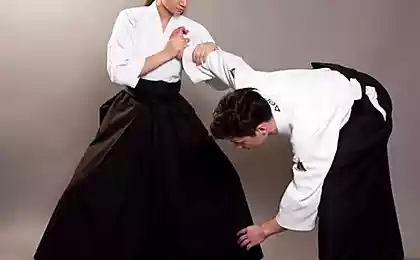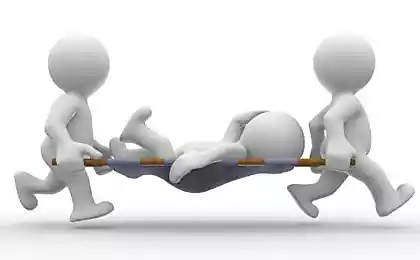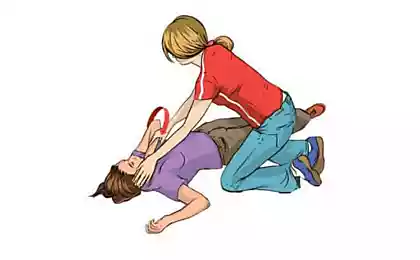163
Rules of first psychological assistance
We continue to be wary of psychotherapy and psychotherapists. Somehow it is believed that psychological assistance This is not a mandatory measure, even in critical situations. And the specialists of this industry are addressed only by capricious rich people or those who are seriously ill.
Although the help of a specialist is necessary even for the most ordinary and normal people who are in a crisis situation. And today's edition. "Site" It offers to get acquainted with the recommendations of a practicing specialist who knows exactly how to help a person with stress.
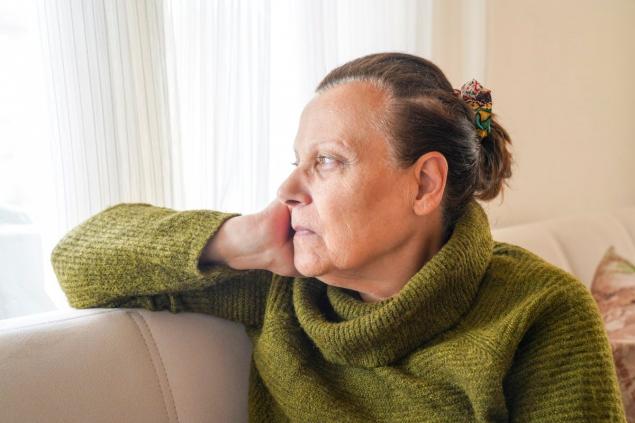
Medical psychologist Elizaveta Gottfrik believes that in a crisis situation you need to first help yourself, and only then try to help others.
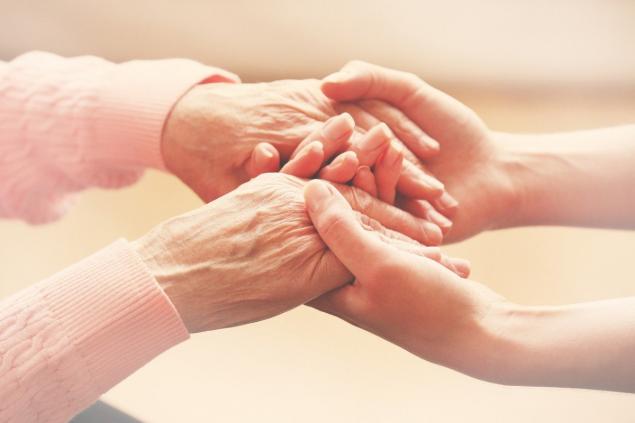
“The first thing you do is get out of the disaster zone, find a safe space. Then try to assess what is happening as objectively as possible, assess the situation, the expert advises.
“The first thing a person who has experienced shock needs is warmth. It needs to be warmed and ensure that its temperature is normal. Give a blanket, you can wrap in your jacket, offer water or hot tea (drink only in small sips). Even strong drinks will not be superfluous.”
“Of course, if there are physical injuries, the first thing to do is to seek an ambulance and take all pre-medical measures in time, such as stopping bleeding, fixing fractures, applying a bandage and so on. Do whatever is necessary beyond the psychological assistance itself.”

Proper breathing under stress Elizabeth advises to apply and “anti-stress” breathing. You have to learn it yourself and then teach other people. The essence of the exercise is that you need to first slowly take a deep breath through the nose, hold your breath at the peak, and then slowly exhale with your mouth. At the same time, you need to imagine how you get rid of tension, as if you really “breath out” it.

You can also resort to muscle relaxation. To do this, relax the muscles of the forehead and chin, lower the corners of the mouth and lick the lips. Then relax your shoulders, twist your head, turn it in different directions. Shake your hands. Remember that your face and body position reflect your current state of mind.
You need to look around, make a visual inventory, even if you know where you are. Try to mentally record what is happening next to you like “the birch is growing” or “the dog ran over.” If you are in the house, then go through the interior items in your head. This is a great distraction from the internal tension, switching attention.”
“If there is a stranger in a stupor, you should come closer, take your hand and start a conversation. Ask him what his name is, if he's okay, if he remembers his address or his mobile number. See if you can help. If the reaction in response will be tears, do not be afraid. Emotional expressions are better than stupor, says the specialist.

A simple statement like “calm down, rag” is unlikely to work. But you can help yourself if you ground and relieve excess tension. To do this, try my favorite exercise “5-4-3-2-1”.
The essence of the exercise is that in the moment of excessive excitement, you need to look around and mentally name 5 colors, 4 sounds, 3 smells, 2 sensations in your own body and remember one of your strongest qualities.
“You cannot relax just by wishing it. But you can remove anxiety with the help of physical activity. Small jumps help perfectly (although they need to be done at least fifty). You can just shake, imitating wild animals. Just imagine that at this moment you “shake off” the tension from the hands, legs, body and head, – advises the expert.
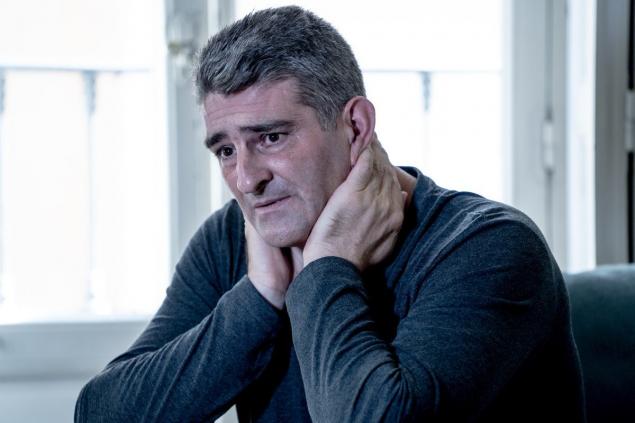
Of course, in a difficult period of life. It is better to consult a psychotherapist.After all, the provision of psychological assistance will be as accurate as possible. But universal recommendations (no matter how strange they may seem) will allow you to quickly help yourself in a difficult moment. So why not try?
Although the help of a specialist is necessary even for the most ordinary and normal people who are in a crisis situation. And today's edition. "Site" It offers to get acquainted with the recommendations of a practicing specialist who knows exactly how to help a person with stress.

Medical psychologist Elizaveta Gottfrik believes that in a crisis situation you need to first help yourself, and only then try to help others.

“The first thing you do is get out of the disaster zone, find a safe space. Then try to assess what is happening as objectively as possible, assess the situation, the expert advises.
“The first thing a person who has experienced shock needs is warmth. It needs to be warmed and ensure that its temperature is normal. Give a blanket, you can wrap in your jacket, offer water or hot tea (drink only in small sips). Even strong drinks will not be superfluous.”
“Of course, if there are physical injuries, the first thing to do is to seek an ambulance and take all pre-medical measures in time, such as stopping bleeding, fixing fractures, applying a bandage and so on. Do whatever is necessary beyond the psychological assistance itself.”

Proper breathing under stress Elizabeth advises to apply and “anti-stress” breathing. You have to learn it yourself and then teach other people. The essence of the exercise is that you need to first slowly take a deep breath through the nose, hold your breath at the peak, and then slowly exhale with your mouth. At the same time, you need to imagine how you get rid of tension, as if you really “breath out” it.

You can also resort to muscle relaxation. To do this, relax the muscles of the forehead and chin, lower the corners of the mouth and lick the lips. Then relax your shoulders, twist your head, turn it in different directions. Shake your hands. Remember that your face and body position reflect your current state of mind.
You need to look around, make a visual inventory, even if you know where you are. Try to mentally record what is happening next to you like “the birch is growing” or “the dog ran over.” If you are in the house, then go through the interior items in your head. This is a great distraction from the internal tension, switching attention.”
“If there is a stranger in a stupor, you should come closer, take your hand and start a conversation. Ask him what his name is, if he's okay, if he remembers his address or his mobile number. See if you can help. If the reaction in response will be tears, do not be afraid. Emotional expressions are better than stupor, says the specialist.

A simple statement like “calm down, rag” is unlikely to work. But you can help yourself if you ground and relieve excess tension. To do this, try my favorite exercise “5-4-3-2-1”.
The essence of the exercise is that in the moment of excessive excitement, you need to look around and mentally name 5 colors, 4 sounds, 3 smells, 2 sensations in your own body and remember one of your strongest qualities.
“You cannot relax just by wishing it. But you can remove anxiety with the help of physical activity. Small jumps help perfectly (although they need to be done at least fifty). You can just shake, imitating wild animals. Just imagine that at this moment you “shake off” the tension from the hands, legs, body and head, – advises the expert.

Of course, in a difficult period of life. It is better to consult a psychotherapist.After all, the provision of psychological assistance will be as accurate as possible. But universal recommendations (no matter how strange they may seem) will allow you to quickly help yourself in a difficult moment. So why not try?
